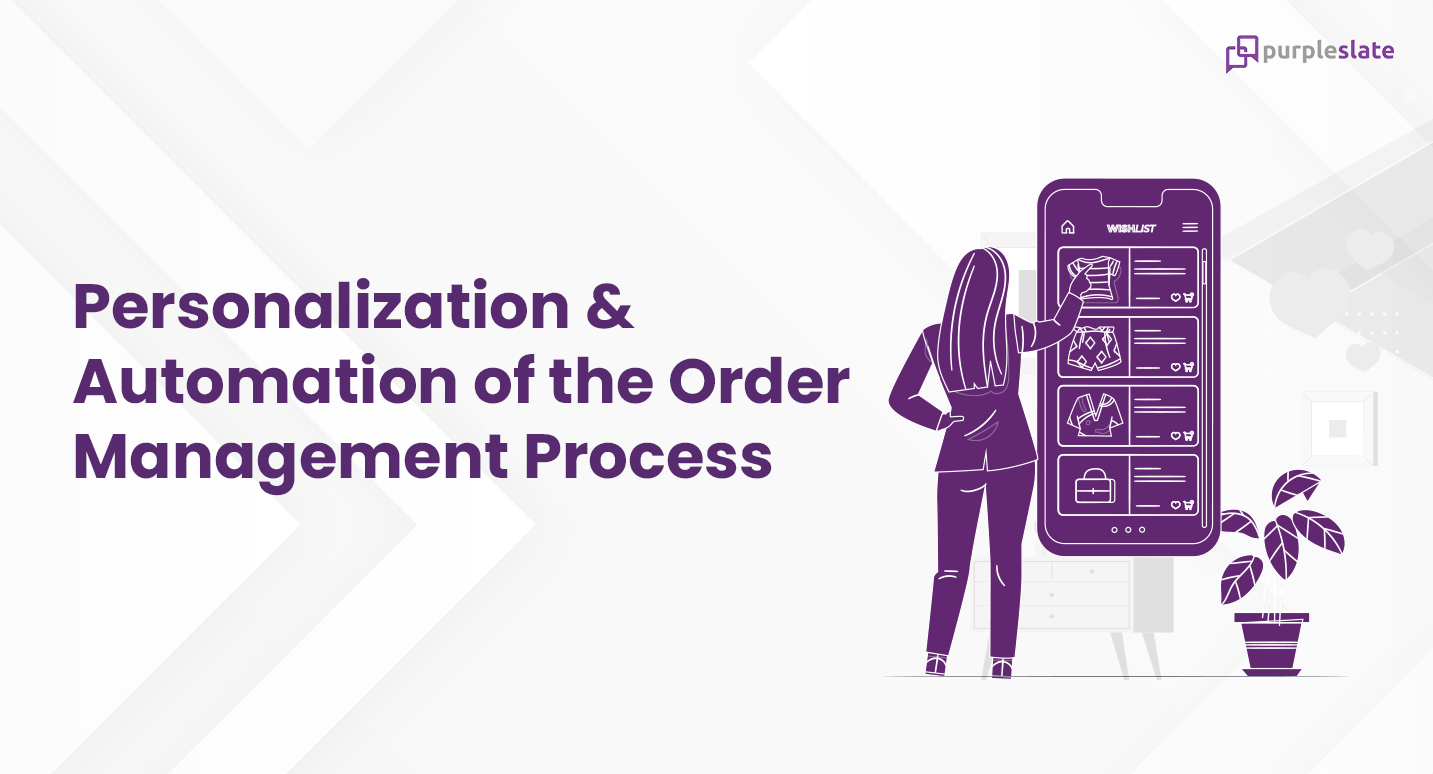
Introduction
Before learning about the personalization and automation capabilities of Conversational AI in Retail sector, one must know about the major channels used by retailers.
Amazon, SnapDeal, Flipkart
Teleshopping channels
Catalogs, newspapers, and magazines
Social media like Facebook, Instagram
E-commerce sites managed by self and 3rd party retailers
These are some of the channels, but not an exhaustive list of the channels available for buying retail products. Expectation from the customer is to fulfill their orders on time, irrespective of the channel they have ordered the product on. It is right for the customer to expect and it is the responsibility of the enterprises to fulfill the order on time through their order management system.
The Process
The order management system kicks in when the customer places orders and ends with order fulfillment. At times, it extends to return and cancellation. For effective customer service, a continuum of people, systems, and suppliers is essential.
The efficacy of the order management processes has become a more substantial challenge for firms as the number of transactions has increased. Companies must operate error-free from order receipt to delivery to satisfy customers with on-time deliveries. As the number of orders and customer expectations are getting higher, companies are implementing conversational AI to automate and expedite the orders. Conversational AI in retail can help manage the creation of new orders, check the status of orders in progress, cancelled orders, delayed orders, and a lot more.
There is also a very definite trend towards further individualization and customization that drives the strong growth of and constant changes in the product portfolio. The competition is driven by online transparency and simple access to a plethora of options of where to purchase and what to buy. To build on these trends and cope with the changed requirements, the order management system needs to become much faster, more granular, and much more precise.
Below is a list of the CAI application across the Order Management System(OMS) value chain.
- Placement: AI chatbots enable customers to place orders across a range of platforms, such as websites, WhatsApp, social media, and more in a Conversational manner.
- Receipt confirmation: Distribute confirmation receipts with accurate order details automatically to customers of any size.
- Tracking: Assist consumers in tracking the status of their orders during shipping to cut down on the amount of time spent on the phone, via chat, and text.
- Notification: Customers can receive customized, timely delivery/payment reminders and order notifications.
- Repeat orders: Easy and conversational way for customers to repeat their orders after regular time intervals.
- Cancellation and Return: Faster and automated processing of order returns and cancellation requests from customers.
Various repetitive tasks associated with order management can be automated with AI chatbots and smart virtual assistants. Company’s ERP and/or CRM are integrated with the power of machine learning (ML) and natural language processing (NLP). This allows CAI to capture and automatically utilize product names, and order numbers, give order status, send receipts, provide confirmations, and more.
1. Enhanced Customer Experience
Customer support is a big part of any business and Customer satisfaction is vital to OMS from order to delivery. CAI redefines the CX and it is used to interact with customers to offer assistance or answer questions about products or services. It is also helpful when providing feedback on products and services, which can help businesses to improve their product quality and customer experience.
Conversational AI in retail is used to automatically gather customer details with their interactions. This helps to better understand customer demands and plan customer journeys accordingly. An OMS with AI capabilities may locate and utilize useful consumer information like buying patterns, routines, complaints, and sales cycles.
2. Error-free order management
AI bots save from the chances of errors in both customer and product data collection associated with orders and enable accurate data collection. CAI either prevents (in the case of self-service) or reduces (in the case of document data extraction) mistyping and duplication errors during customer data collection processes. It also understands duplication errors and mistyped information and fixes them before collecting the data. This helps to reduce order processing delays.
A Conversational AI platform reduces the likelihood of any order being delivered to the incorrect location by tracking all orders concurrently and keeping order details in the OMS. By tracking orders in real-time and keeping details in the system, order management tools significantly reduce wrong order deliveries.
3. Faster order processes
Order management automation with CAI adds a faster pace to every associated process, which allows organizations to manage more activities within the same time frame. Without taking any breaks, a CAI-enabled OMS can handle repetitive processes such as entering order information, managing distribution processes, and other similar tasks. It also enables companies to free up human resources to handle more critical tasks in the same time frame.
4. Real-time order tracking
When a customer places an order, we need to track the status of that order and notify them when it ships or if any additional steps are required. Conversational AI in retail can track orders constantly from its packaging to delivery to the customers. The OMS safeguards all information, and clients continue to receive proactive updates regarding their orders on demand.
AI-powered chatbots app with voice recognition capabilities can respond automatically based on queries related to order tracking.
5. On-Time Delivery
To satisfy their customers, businesses must deliver correct orders on time (or, better yet, ahead of schedule) and in neat packaging. On the other hand, one incorrect order could result in lost business. Order management technologies deliver orders on schedule and offer a good client experience by tracking orders in real-time and storing details in the system.
6. Automated notifications
Customers obtain a smoother ordering experience when CAI automatically retrieves order and payment data and sends relevant and timely notifications. Notifying customers at each stage of order fulfillment will enhance customer satisfaction and increase loyalty.
7. Automates Repetitive Tasks
Users can interact with technology in a contextual conversation that resembles human interaction thanks to conversational AI, which removes the complex user interface. The user thereby receives customized answers to their inquiries. The capacity to quickly find insightful information is layered onto this streamlined engagement with data.
8. Increase Productivity and Efficiency
AI is used to automate processes within your company’s OMS. For example, Conversational AI is used in order fulfilment centers. Smart Virtual Assistants assimilate information from various data sources and coordinate tasks on order status and escalate to humans for any deviations. The other benefits of CAI in increasing productivity are listed below.
· Reduce live agent handling time and costs
· Upskill live agents to handle higher-value items that necessitate the human touch.
· Validate different types of information fast and effectively.
· Allow customers to self-service any order management request.
· It is compatible with IVR, contact centers, and data analytics.
CAI implementations are designed with customer experience in mind, so they feel, sound, and speak like humans. Smart virtual assistants enable organizations to provide a superhuman customer experience with 24/7 availability, no wait times, and exhaustive data.
Conversational AI Can Expand Your OMS Capabilities!
When the number of customers, orders, and consumer data increases, so does the size of the business. This surge is easily manageable thanks to the integration of conversational AI with order management systems.
AI-powered virtual agents use conversational AI to automate the routine conversations traditionally handled by live agents. Organizations typically start in voice, where the ROI is the greatest, then scale the same experience to chat or text for a complete omnichannel self-service strategy.




